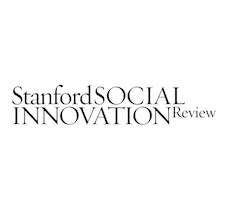For almost three decades, I have been writing grant proposals aimed at improving youth outcomes in school and beyond. I began with small proposals as a classroom teacher and moved to multimillion dollar proposals as a school district administrator, director of a university consortium, and now president of Search Institute, a nonprofit organization that studies and works to strengthen youth development and education.
I recently I ran into the program officer who approved one of my first major proposals. As we caught up on each other’s lives, he asked, “Given all of the grants you have written and the work you have done, what is the most important thing you would tell funders to look for when they review a proposal that involves young people?”
As I thought about his question, I realized that my answer has shifted over the years. In the first decade of my career, I would have recommended that funders review proposals for use of “best practices” and strategies that hold people accountable for using them. During the second decade, I would have said to invest in interventions that showed strong evidence of success and that used approaches such as “collective impact” and “improvement science” to scale those interventions.
Now in my third professional decade, however, I gave a simpler answer: “Invest in interventions that emphasize relationships.”
This is an excerpt from the full article, which can be found here.





